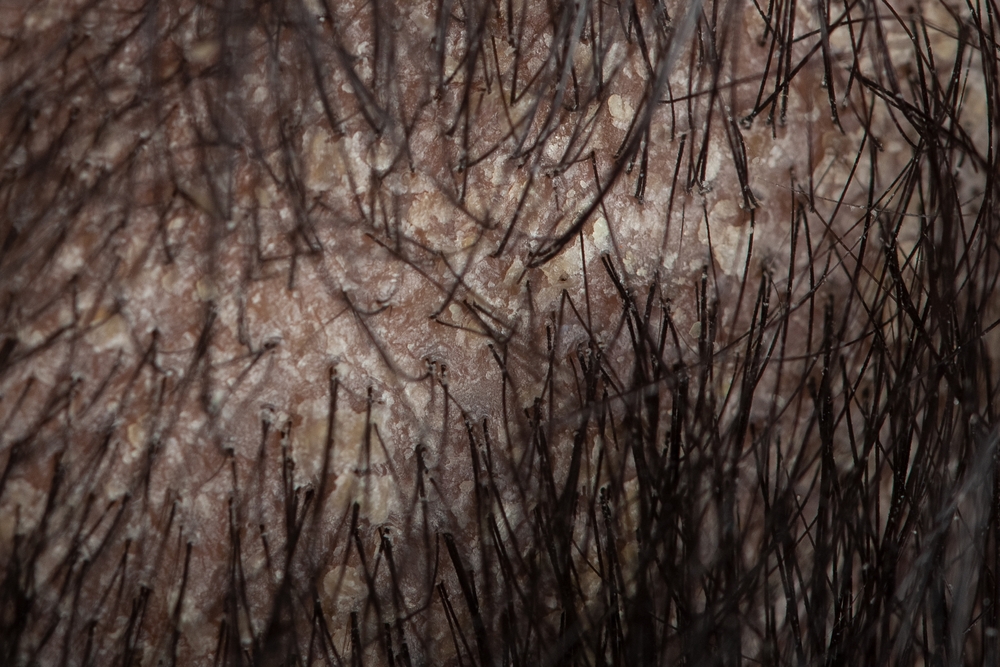Dealing with flaky scalp can be frustrating and uncomfortable. Understanding the state of the scalp and determining whether it’s caused by scalp psoriasis or dandruff can be challenging. Both conditions share similar symptoms to some extent such as itchiness or flakiness. However, each of these conditions is caused by distinct underlying causes and therefore, they require different set of treatment approaches. Scalp psoriasis and dandruff comparison calls for an in-depth understanding of the two states of scalp.
Dandruff, a common condition affecting millions worldwide, is typically caused by the overgrowth of yeast on the scalp, leading to flaking and irritation. On the other hand, scalp psoriasis is an autoimmune disorder characterized by the rapid turnover of skin cells, resulting in the formation of thick, scaly patches on the scalp. Differentiating between the two is crucial for effective management and preventive measures that could be taken in the future. This blog entails an in-depth understanding of the two, causes, symptoms, and major differentiation that could give clarity between the two. So, keep skimming through the blog to explore flaky scalp troubles and potential ways to resolve them!
Understanding Scalp Psoriasis
Scalp psoriasis often manifests as thick, scaly, and faky patches on the scalp, leading to itchiness and discomfort. This condition stems from an overproduction of skin cells, resulting in a rapid buildup of scales. Managing scalp psoriasis typically involves the use of topical treatments like steroid creams or ointments, which work to mitigate and control the symptoms, reducing inflammation and redness.
Additionally, shampoos containing tar or salicylic acid can help to remove scales and soothe the scalp. For more severe cases, treatments such as ultraviolet light therapy or systemic medications taken orally or via injection under a strict supervision of a practicing dermatologist.
Moreover, it is advisable to seek medicinal attention and consult a certified doctor to manage prolonged and severe cases of scalp psoriasis.
Understanding Dandruff
Dandruff can be categorized by the presence of small, flaky dead skin cells shedding from the scalp. While the exact cause remains uncertain, it’s believed to be linked to the presence of a fungus on the skin. Although dandruff isn’t contagious or harmful, it can be bothersome due to its tendency to cause itching and discomfort.
Fortunately, dandruff does not lead to scalp redness or scabbiness. As much as there is no complete cure, it can still be managed through medicated shampoos that can control symptoms by reducing the fungus and combatting excess oil.
Understanding Dandruff Development on the Scalp
- Dandruff characterized by dry skin flakes on the scalp is the result of overreaction to common yeast in the skin. This overreaction may lead to excessive skin cell production, forming dandruff flakes.
- Flakes are typically small and may also manifest as dry skin on other parts of the body if yeast overreaction is the cause.
- Using harsh shampoos and over washing the hair can exacerbate scalp irritation and contribute to dandruff development.
Seborrheic Dermatitis and Dandruff
- Seborrheic dermatitis can often be the cause of dandruff affecting areas with oil secreting glands which ultimately results in red patches producing flakes on the scalp.
- Flakes from seborrheic dermatitis are usually larger than those from dry skin, and the condition can lead to flaky, irritated patches on other areas of the face and body, potentially mistaken for psoriasis.
- In dark toned people seborrheic dermatitis may appear in the form of hypopigmentation, curved lesions along the hairline, or flaking on the scalp in infants.
Understanding Scalp Psoriasis Development on the Scalp
- Scalp psoriasis is an autoimmune disease caused by the malfunctioning of the system where autoantibodies attack healthy tissue, resulting in accelerated production of skin cells.
- This over production of the skin cells leads to accumulation of dry and flaky patches on the scalp and other parts of the body.
Abnormal Skin Cell Growth
- Typically, normal skin cells shed in small, thin fragments without notice. New healthy skin cells then replace the dead skin over weeks.
- In psoriasis, this process accelerates, preventing proper shedding and leading to the buildup of dead skin cells on the surface.
- Psoriasis commonly affects areas like elbows, knees, and back, especially the regions where the buildup of the skin cells is prominent.
Variety of Manifestations
- Psoriasis can manifest in various forms, including cracked and dry skin, discolored patches, or small silvery patches.
- The appearance may vary depending on skin tone. It may range from salmon-colored with silvery-white scales on medium skin tones to violet with gray scales on darker skin tones.
Prevalence of Scalp Psoriasis
Scalp psoriasis is a common occurrence among individuals with body psoriasis, affecting approximately 50% of the 7.5 million people in the United States. While most people with psoriasis experience at least one flare-up of scalp psoriasis, 80% to 90% of individuals with psoriasis have the plaque form of the condition.
Contagion Concerns: Scalp Psoriasis vs Dandruff
Scalp Psoriasis
Scalp psoriasis is non-contagious; that is, it cannot be transmitted to another person through direct or skin-to-skin contact.
Dandruff
Dandruff is not contagious either. There is no risk of spreading through direct or indirect contact with others.
Treating Scalp Psoriasis
- Prescription medications including topical steroids, retinoids, vitamin D derivatives, or immune system-targeting drugs are often prescribed by a certified dermatologist to treat scalp psoriasis.
- Light therapy and medicated injections may also be recommended to manage symptoms effectively.
- Over-the-counter options such as salicylic acid or tar shampoos can help reduce inflammation and scales associated with scalp psoriasis. Furthermore, it is recommended to consult a certified doctor or seek medicinal attention in case of severe scalp psoriasis.
Managing Dandruff
- Medicated shampoos are often consumed to manage or control dandruff. Shampoos containing zinc pyrithione, ketoconazole, salicylic acid, or selenium sulfide are effective in treating dandruff.
- For improved effectiveness, these medicated shampoos can be used in rotation or in combination.
- In cases of itching or severe dandruff, topical steroids may be considered as part of the treatment plan. However, any medicinal approach must only be considered under strict vigilance of a certified and practicing dermatologist.
Final Verdict
It is important to gain insights and distinguish between scalp psoriasis and dandruff to opt for effective treatment approaches. While both conditions share similar symptoms, their underlying causes differ significantly. Scalp psoriasis, an autoimmune disorder, requires targeted medications and therapies, whereas dandruff can often be managed with over-the-counter remedies.
Moreover, exploring potential treatment with psoriasis clinical trials could be a better approach to gain further insights into the subject and discover effective and innovative management options. Seeking professional guidance for accurate diagnosis and personalized treatment is vital for addressing symptoms and promoting scalp health.




